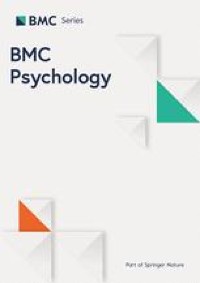
Czeisler M, Lane RI, Petrosky E, et al. Mental Health, Substance Use, and suicidal ideation during the COVID-19 pandemic – United States, June 24–30, 2020. MMWR Morb Mortal Wkly Rep Aug. 2020;14(32):1049–57. https://doi.org/10.15585/mmwr.mm6932a1.
Poll KFFC. March 2020. 2020. https://www.kff.org/coronavirus-covid-19/poll-finding/kff-coronavirus-poll-march-2020/.
The Implications of COVID-19 for Mental Health and Substance Use. Kaiser Family Foundation; 2021. https://www.kff.org/coronavirus-covid-19/issue-brief/the-implications-of-covid-19-for-mental-health-and-substance-use/.
Rajkumar RP. COVID-19 and mental health: a review of the existing literature. Asian J Psychiatr. 2020;52:102066–6. https://doi.org/10.1016/j.ajp.2020.102066.
Torales J, O’Higgins M, Castaldelli-Maia JM, Ventriglio A. The outbreak of COVID-19 coronavirus and its impact on global mental health. Int J Social Psychiatry 2020/06/01. 2020;66(4):317–20. https://doi.org/10.1177/0020764020915212.
Twenge JM, Joiner TE. Mental distress among U.S. adults during the COVID-19 pandemic. J Clin Psychol Dec. 2020;76(12):2170–82. https://doi.org/10.1002/jclp.23064.
Browning MHEM, Larson LR, Sharaievska I, et al. Psychological impacts from COVID-19 among university students: risk factors across seven states in the United States. PLoS ONE. 2021;16(1):e0245327. https://doi.org/10.1371/journal.pone.0245327.
Jewell JS, Farewell CV, Welton-Mitchell C, Lee-Winn A, Walls J, Leiferman JA. Mental Health during the COVID-19 pandemic in the United States: Online Survey. JMIR Form Res Oct. 2020;23(10):e22043. https://doi.org/10.2196/22043.
Mortazavi SS, Assari S, Alimohamadi A, Rafiee M, Shati M, Fear. Loss, social isolation, and incomplete grief due to COVID-19: a recipe for a Psychiatric Pandemic. Basic Clin Neurosci Mar-Apr. 2020;11(2):225–32. https://doi.org/10.32598/bcn.11.covid19.2549.1.
Gibbs TMLPM, Ulrick Vieux DO, Myles Solan, Paul Rosenfield MD. Mental Health Disparities Among Black Americans During the COVID-19 Pandemic. Psychiatric Times. https://www.psychiatrictimes.com/view/mental-health-disparities-among-black-americans-during-covid-19-pandemic.
Holingue C, Kalb LG, Riehm KE et al. Mental Distress in the United States at the beginning of the COVID-19 pandemic. Am J Public Health. 2020/11/01 2020;110(11):1628–34. https://doi.org/10.2105/AJPH.2020.305857.
Thibaut F, van Wijngaarden-Cremers PJM. Women’s Mental Health in the Time of Covid-19 Pandemic. Mini Rev Front Global Women’s Health 2020-December-08. 2020;1. https://doi.org/10.3389/fgwh.2020.588372.
Saltzman LAEL, Veronica Henry TC, Hansel. Bordnick. COVID-19 Mental Health Disparities. Health Secur. 2021;19(S1):–5. https://doi.org/10.1089/hs.2021.0017.
Kessler RC, Ruhm CJ, Puac-Polanco V, Hwang IH, Lee S, Petukhova MV, Sampson NA, Ziobrowski HN, Zaslavsky AM, Zubizarreta JR. Estimated Prevalence of and Factors Associated With Clinically Significant Anxiety and Depression Among US Adults During the First Year of the COVID-19 Pandemic. JAMA Netw Open. 2022 Jun 1;5(6):e2217223. https://pesquisa.bvsalud.org/global-literature-on-novel-coronavirus-2019-ncov/resource/pt/covidwho-1888479.
Sun, Y., Wu, Y., Fan, S., Dal Santo, T., Li, L., Jiang, X., … & Thombs, B. D. (2023). Comparison of mental health symptoms before and during the covid-19 pandemic: evidence from a systematic review and meta-analysis of 134 cohorts. bmj, 380
Schäfer, M., Stark, B., Werner, A. M., Tibubos, A. N., Reichel, J. L., Pfirrmann, D., … & Dietz, P. (2021). Health information seeking among university students before and during the corona crisis—findings from Germany. Frontiers in public health, 8, 616603
Anker AE, Reinhart AM, Feeley TH. Health information seeking: a review of measures and methods. Patient Educ Couns. 2011;82(3):346–54. https://pubmed.ncbi.nlm.nih.gov/21239134/.
Ikoja-Odongo R, Mostert J. Information seeking behaviour: a conceptual framework. South Afr J Libr Inform Sci 01/01. 2006;7210.7553/72-3-1112.
Ferrer RA, Klein WMP, Lerner JS, Reyna VF. Dacher. Emotions and Health Decision-Making: Extending the Appraisal Tendency Framework to Improve Health and Healthcare. 2014.
Jacobs J, Taylor M, Agho K, Stevens G, Barr M, Raphael B. Factors associated with increased risk perception of pandemic influenza in australia. Influenza Res Treat. 2010;2010:947906–6. https://doi.org/10.1155/2010/947906.
Honda K, Goodwin RD, Neugut AI. The associations between psychological distress and cancer prevention practices. Cancer Detect Prev. 2005;29(1):25–36. https://doi.org/10.1016/j.cdp.2004.08.004.
Lagoe C, Atkin D. Health anxiety in the digital age: An exploration of psychological determinants of online health information seeking. Computers in Human Behavior. 2015/11/01/ 2015;52:484–491. https://doi.org/10.1016/j.chb.2015.06.003.
Myrick JG, Willoughby JF. Educated but anxious: how emotional states and education levels combine to influence online health information seeking. Health Inf J Sep. 2019;25(3):649–60. https://doi.org/10.1177/1460458217719561.
Oh YS, Song NK. Investigating Relationships Between Health-Related Problems and Online Health Information Seeking. CIN:, Computers. Informatics, Nursing. 2017;35(1).
Powell J, Clarke A. Internet information-seeking in mental health: Population survey. Br J Psychiatry. 2006;189(3):273–7. https://doi.org/10.1192/bjp.bp.105.017319.
Singh K, Brown RJ, Anxiety. Stress & Coping. 2014;27(5):542–54. https://doi.org/10.1080/10615806.2014.888061. /09/03 2014.
McMullan RD, Berle D, Arnáez S, Starcevic V. The relationships between health anxiety, online health information seeking, and cyberchondria: systematic review and meta-analysis. J Affect Disord. 2019;245:270–8. https://doi.org/10.1016/j.jad.2018.11.037. 2019/02/15/.
Kahlor L. PRISM: A Planned Risk Information Seeking Model. Health Communication. 2010/05/28 2010;25(4):345–356. https://doi.org/10.1080/10410231003775172.
Neuberger L, Silk KJ. Uncertainty and information-seeking patterns: a test of competing hypotheses in the context of health care reform. Health Commun. 2016;31(7):892–902. https://doi.org/10.1080/10410236.2015.1012633. /07/02 2016.
Baumgartner SE, Hartmann T, Social Networking. The role of health anxiety in Online Health Information Search. Cyberpsychology, Behavior, and. 2011/10/01 2011;14(10):613–8. https://doi.org/10.1089/cyber.2010.0425.
Barbour JB, Rintamaki LS, Ramsey JA, Brashers DE. Avoiding Health Information. J Health Communication 2012/02/01. 2012;17(2):212–29. https://doi.org/10.1080/10810730.2011.585691.
Holmes BJ. Communicating about emerging infectious disease: the importance of research. Health Risk & Society. 2008;10(4):349–60. https://doi.org/10.1080/13698570802166431. /08/01 2008.
Thompson RA. Regulation: a theme in, search of definition. Monogr Soc Res Child Dev. 1994;59(2–3):25–52. https://doi.org/10.1111/j.1540-5834.1994.tb01276.x.
Holahan CJ, Moos RH, Bonin LA. Social context and depression: an integrative stress and coping framework. The interactional nature of depression: advances in interpersonal approaches. American Psychological Association; 1999. pp. 39–63.
Stress Generation A, Coping, Symptoms D. A 10-Year model. American Psychological Association; 2005. https://doi.org/10.1037/0022-006X.73.4.658.
Novotney A. The risks of social isolation. Monitor on Psychology. https://www.apa.org/monitor/2019/05/ce-corner-isolation.
Ottenbreit ND, Dobson KS, Quigley L. An examination of avoidance in major depression in comparison to social anxiety disorder. Behaviour Research and Therapy. 2014/05/01/ 2014;56:82–90. https://doi.org/10.1016/j.brat.2014.03.005.
Barrett EL, Mills KL, Teesson M. Mental health correlates of anger in the general population: findings from the 2007 National Survey of Mental Health and Wellbeing. Australian & New Zealand Journal of Psychiatry 2013/05/01. 2013;47(5):470–6. https://doi.org/10.1177/0004867413476752.
Myrick JG, Willoughby JF. Educated but anxious: How emotional states and education levels combine to influence online health information seeking. Health Informatics Journal., Ferrer R, Klein WM. Risk perceptions and health behavior. Curr Opin Psychol. 2015 Oct 1;5:85–89. 10.1016/j.copsyc.2015.03.012. PMID: 26258160; PMCID: PMC4525709.
Tagini S, Brugnera A, Ferrucci R, et al. It won’t happen to me! Psychosocial factors influencing risk perception for respiratory infectious diseases: a scoping review. Appl Psychology: Health Well-Being. 2021;13(4):835–52. https://doi.org/10.1111/aphw.12274. /11/01 2021.
Koh D, Lim MK, Chia SE, et al. Risk perception and impact of severe Acute Respiratory Syndrome (SARS) on work and personal lives of healthcare workers in Singapore: what can we learn? Med Care Jul. 2005;43(7):676–82. https://doi.org/10.1097/01.mlr.0000167181.36730.cc.
Rovner BW, Haller JA, Casten RJ, Murchison AP, Hark LA. Depression and risk perceptions in older African Americans with Diabetes. Diabetes Spectr. 2014;27(2):114–8. https://doi.org/10.2337/diaspect.27.2.114.
Lanciano T, Graziano G, Curci A, Costadura S, Monaco A. Risk Perceptions and Psychological Effects During the Italian COVID-19 Emergency. Original Research. Frontiers in Psychology. 2020-September-18 2020;11doi:https://doi.org/10.3389/fpsyg.2020.58005345. Yang, C. (2020). Does hand hygiene reduce SARS-CoV-2 transmission?. Graefe’s Archive for Clinical and Experimental Ophthalmology, 258, 1133–1134.
Li ASW, Figg G, Schüz B. Socioeconomic status and the prediction of health promoting dietary behaviours: a systematic review and meta-analysis based on the theory of planned behaviour. Appl Psychol Health Well-Being. 2019;11(3):382–406. https://doi.org/10.1111/aphw.12154.
McEachan RRC, Conner M, Taylor NJ, Lawton RJ. Prospective prediction of health-related behaviours with the theory of Planned Behaviour: a meta-analysis. Health Psychol Rev 2011/09/01. 2011;5(2):97–144. https://doi.org/10.1080/17437199.2010.521684.
Morley KI, Lynskey MT, Moran P, Borschmann R, Winstock AR. Polysubstance use, mental health and high-risk behaviours: Results from the 2012 Global Drug Survey. Drug Alcohol Rev. 2015;34(4):427–37. https://doi.org/10.1111/dar.12263.
Harper CA, Satchell LP, Fido D, Latzman RD. Functional fear predicts Public Health Compliance in the COVID-19 pandemic. Int J Ment Health Addict. 2021;19(5):1875–88. https://doi.org/10.1007/s11469-020-00281-5.
Ning L, Niu J, Bi X et al. The impacts of knowledge, risk perception, emotion and information on citizens’ protective behaviors during the outbreak of COVID-19: a cross-sectional study in China. BMC Public Health. 2020/11/23 2020;20(1):1751. https://doi.org/10.1186/s12889-020-09892-y.
Mertens G, Gerritsen L, Duijndam S, Salemink E, Engelhard IM. Fear of the coronavirus (COVID-19): predictors in an online study conducted in March 2020. J Anxiety Disord. 2020/08/01/ 2020;74:102258. https://doi.org/10.1016/j.janxdis.2020.102258.
Ludman EJ, Ichikawa LE, Simon GE et al. Breast and Cervical Cancer Screening: Specific Effects of Depression and Obesity. American Journal of Preventive Medicine. 2010/03/01/ 2010;38(3):303–310. https://doi.org/10.1016/j.amepre.2009.10.039.
Kaida A, Colman I, Janssen PA. Recent pap tests among canadian women: is Depression a barrier to Cervical Cancer Screening? J Women’s Health 2008/09/01. 2008;17(7):1175–81. https://doi.org/10.1089/jwh.2007.0626.
Bodas M, Siman-Tov M, Kreitler S, Peleg K. Psychological correlates of civilian preparedness for conflicts. Disaster Med Pub Health Prep. 2017;11(4):451–9. https://doi.org/10.1017/dmp.2016.163.
James LE, Welton-Mitchell C, Noel JR, James AS. Integrating mental health and disaster preparedness in intervention: a randomized controlled trial with earthquake and flood-affected communities in Haiti. Psychol Med Jan. 2020;50(2):342–52. https://doi.org/10.1017/s0033291719000163.
Karimy M, Koohestani HR, Araban M. The association between attitude, self-efficacy, and social support and adherence to diabetes self-care behavior. Diabetol Metab Syndr. 2018/11/27 2018;10(1):86. https://doi.org/10.1186/s13098-018-0386-6.
Clark C, Davila A, Regis M, Kraus S. Predictors of COVID-19 voluntary compliance behaviors: an international investigation. Glob Transit. 2020;2:76–82. https://doi.org/10.1016/j.glt.2020.06.003.
Koebele EA, Albright EA, Dickinson KL, Perceptions of Efficacy are Key Determinants of Mask-Wearing Behavior during the COVID-19 Pandemic. Nat Hazards Rev. 2021;22(3):06021002. https://doi.org/10.1061/(ASCE)NH.1527-6996.0000489.
Burger R, Christian C, English R, Maughan-Brown B, Rossouw L et al. Predictors of mask-wearing during the advent of the COVID-19 pandemic: evidence from South Africa. Transl Behav Med. 2022;12(1):ibab132. https://doi.org/10.1093/tbm/ibab132.
Shacham M, Hamama-Raz Y, Kolerman R, Mijiritsky O, Ben-Ezra M, Mijiritsky E. COVID-19 factors and psychological factors Associated with elevated psychological distress among dentists and Dental Hygienists in Israel. Int J Environ Res Public Health Apr. 2020;22(8). https://doi.org/10.3390/ijerph17082900.
Yıldırım M, Güler A. Factor analysis of the COVID-19 perceived risk scale: a preliminary study. Death Stud 04/17. 2022;46:1065–72. https://doi.org/10.1080/07481187.2020.1784311.
Gross JJ, Uusberg H, Uusberg A. Mental illness and well-being: an affect regulation perspective. World Psychiatry. 2019;18(2):130–9. https://doi.org/10.1002/wps.20618.
Choo CW. Seeking and avoiding information in a risky world. Inf Res. 2017;22.
Godovykh M, Pizam A, Bahja F. Antecedents and outcomes of health risk perceptions in tourism, following the COVID-19 pandemic. Tourism Rev 01/27 2021;ahead-of-printdoi:https://doi.org/10.1108/TR-06-2020-0257.
Lerner JS, Han S, Keltner D. Feelings and Consumer Decision Making: Extending the Appraisal-Tendency Framework. Journal of Consumer Psychology. 2007/07/01/ 2007;17(3):181–187. https://doi.org/10.1016/S1057-7408(07)70027-X.
Lerner JS, Keltner D. Beyond valence: toward a model of emotion-specific influences on judgement and choice. Cogn Emot. 2000;14(4):473–93. https://doi.org/10.1080/026999300402763. /07/01 2000.
Ownby KK. Use of the Distress Thermometer in Clinical Practice. J Adv Pract Oncol. 2019;10(2):175–9.
World Health Organization U. Assessing mental health and psychosocial needs and resources: toolkit for humanitarian settings. World health Organization; 2012.
Roberts JD, Dickinson KL, Koebele E, et al. Clinicians, cooks, and cashiers: examining health equity and the COVID-19 risks to essential workers. Toxicol Ind Health Sep. 2020;36(9):689–702. https://doi.org/10.1177/0748233720970439.
Census Bureau US, Reports CP. P60-276, income in the United States: 2021. Washington, DC: U.S. Government Publishing Office; September 2022.
Ownby KK. Use of the Distress Thermometer in Clinical Practice. J Adv Pract Oncol. 2019 Mar;10(2):175–9. Epub 2019 Mar 1. PMID: 31538028; PMCID: PMC6750919.
World Health Organization. Assessing mental health and psychosocial needs and resources: Toolkit for humanitarian settings. World Health Organization; 2012.
Kluger J. The Coronavirus Pandemic’s Outsized Effect on Women’s Mental Health Around the World. The New York Times. https://time.com/5892297/women-coronavirus-mental-health/.
Liu X, Zhu M, Zhang R et al. Public mental health problems during COVID-19 pandemic: a large-scale meta-analysis of the evidence. Translational Psychiatry. 2021/07/09 2021;11(1):384. https://doi.org/10.1038/s41398-021-01501-9.
McKnight-Eily LR, Okoro CA, Strine TW et al. Racial and Ethnic Disparities in the Prevalence of Stress and Worry, Mental Health Conditions, and Increased Substance Use Among Adults During the COVID-19 Pandemic – United States, April and May 2020. MMWR Morbidity and mortality weekly report. 2021 2021;70(5):162–166. https://doi.org/10.15585/mmwr.mm7005a3.
Raifman J, Bor J, Venkataramani A. Association between receipt of unemployment insurance and food insecurity among people who lost employment during the COVID-19 pandemic in the United States. JAMA Netw Open. 2021;4(1):e2035884–4. https://doi.org/10.1001/jamanetworkopen.2020.35884.
Smith K, Bhui K, Cipriani A. COVID-19, mental health and ethnic minorities. Evid Based Mental Health. 2020;23(3):89–90. https://doi.org/10.1136/ebmental-2020-300174.
Taquet M, Luciano S, Geddes JR, Harrison PJ. Bidirectional associations between COVID-19 and psychiatric disorder: retrospective cohort studies of 62 354 COVID-19 cases in the USA. The Lancet Psychiatry. 2021;8(2):130–140. 10.1016/S2215-0366(20)30462-4
Wilson JM, Lee J, Fitzgerald HN, Oosterhoff B, Sevi B, Shook NJ. Job insecurity and financial concern during the COVID-19 pandemic are Associated with worse Mental Health. J Occup Environ Med. 2020;62(9).
Fareed N, Swoboda CM, Jonnalagadda P, Walker DM, Huerta TR. Differences between races in Health Information seeking and Trust over Time: evidence from a cross-sectional, pooled analyses of HINTS Data. Am J Health Promotion 2021/01/01. 2020;35(1):84–92. https://doi.org/10.1177/0890117120934609.
Finucane ML, Slovic P, Mertz CK, Flynn J, Satterfield TA. Gender, race, and perceived risk: The ‘white male’ effect. Health Risk & Society. 2000/07/01 2000;2(2):159–72. https://doi.org/10.1080/713670162.
Rhodes N, Pivik K. Age and gender differences in risky driving: the roles of positive affect and risk perception. Accid Anal Prev May. 2011;43(3):923–31. https://doi.org/10.1016/j.aap.2010.11.015.
Katayama N, Nakagawa A, Umeda S et al. Frontopolar cortex activation associated with pessimistic future-thinking in adults with major depressive disorder. NeuroImage: Clin. 2019/01/01/ 2019;23:101877. https://doi.org/10.1016/j.nicl.2019.101877.
Green EC, Murphy EM, Gryboski K. The Health Belief Model. The Wiley Encyclopedia of Health Psychology. 2020:211–214.
Ali SH, Foreman J, Tozan Y, Capasso A, Jones AM, DiClemente RJ. Trends and Predictors of COVID-19 information sources and their relationship with knowledge and beliefs related to the pandemic: Nationwide Cross-Sectional Study. JMIR Public Health Surveill. 2020;6(4):e21071. https://doi.org/10.2196/21071.




